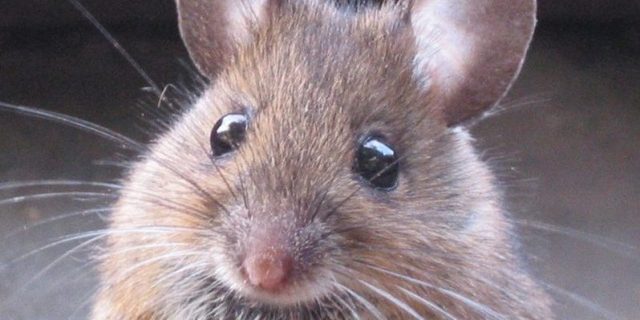24
May
Scientists Develop Nontoxic Method To Deter Rodents from Eating Planted Seeds in Crop Production

(Beyond Pesticides, May 23, 2023) Scientists have developed a nontoxic method to deter rodents from feeding on freshly planted seeds, publishing the approach in the journal Nature Sustainability this month. The new tactic, which confuses mice through olfactory misinformation, has the potential to significantly reduce the use of hazardous rodenticides in farming operations. The approach comes at a time of increased scrutiny around rat poisons, specifically second-generation anticoagulant rodenticides (SGARs), which can result in the secondary poisoning of predators that eat poisoned rodents.
Researchers set out with the intent of finding a safe alternative to rodenticides that can effectively reduce pest damage without the need for hazardous interventions. “A simpler approach to pest damage is to manipulate decisions making by problem animals and disrupt their ability to find at-risk foods,” the study indicates. Contrary to the promises of the pesticide industry that its products are ‘silver bullets’ for pest management, the authors propose weaponizing misinformation over brute force by fooling mice into thinking their sought-out food source is not there.
Mice and other rodent foragers most often rely on scent and odor to determine where food is located. In the context of this study, farmers plant wheat seeds along rows, which mice are able to follow and consume after planting. Following the scent, they dig up these freshly sown seeds and can significantly impact yield. Current conventional chemical approaches rely on attempting to lure rodents into higher value SGAR baited food, or utilize the highly toxic pesticide zinc phosphide, a dust formulated product, which can also result in harm to nontarget animals through drift.
To remedy this problem, scientists aimed to “decouple the otherwise tight association between seeds and seed odor cues.” They took wheat germ seed oil, a concentrated scent of rodents preferred food, and broadcast sprayed it on a wheat field. Utilizing 10x10m plots within a 27 hectare wheat field in Austrailia, these sprays occurred either i) six days before sowing the seeds, or ii) at the time of seed sowing and then every two to three days until seedlings began to push through the soil. Three control plots were established whereby: i) one received canola treatment, ii) another was merely walked on, and iii) one plot was neither sprayed nor walked on.
The experiment took place “during a large-scale mouse plague (at least 300 mice per ha)…” according to the study. Within this context, the results are significant and promising. Scientists recorded 61% fewer mouse diggings on plots pretreated with wheat germ oil during the first week. After germination, diggings were 74% lower on these plots compared to the controls. Those treated at time of planting also saw similarly less mouse damage after one week, though not as significant. Yet by week two, 63% fewer diggings occurred in these plots. The reduction in digging followed alongside similar reductions in lost seedlings.
The results indicate that for treated plots, mice were able to work out the location of seeds – but at a cost. Because of the olfactory misinformation, the process of finding seeds was taxing and exhausting for the mice. Despite evidence of a high mouse population, in the presence of difficult to process information, mice sought out sources of food that were easier to find.
This approach could have major benefits for agricultural production, if further fine-tuned and incorporated into production plans. As many organic and ecologically-minded farmers are aware, working with and manipulating naturally occurring processes achieves consistently better pest management outcomes than the brute force approach of broadcast pesticide poisoning.
Prior research finds that rodenticides act as “super-predators” in ecosystems where these materials are applied, essentially functioning at the top of the food chain, suppressing the population of both prey and their predators. This study adds to ongoing efforts by advocates to catalog alternatives to rodenticides that embrace better prevention practices, and a more holistic management approach.
Rodent problems are common—nearly everyone has dealt with at some point in time. For more information on managing rodent problems holistically in your home or business, see Beyond Pesticides ManageSafe webpage. And to promote on-farm reduction of dangerous rodenticides, support organic agriculture, which does not allow this type of rodent poison, and requires any measure addressing rodent pests be guided by a predetermined organic systems plan.
All unattributed positions and opinions in this piece are those of Beyond Pesticides.
Source: Nature Sustainability
Image source: Wikimedia










